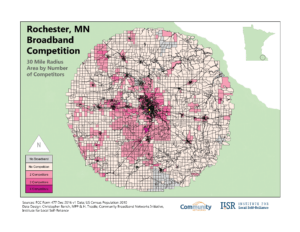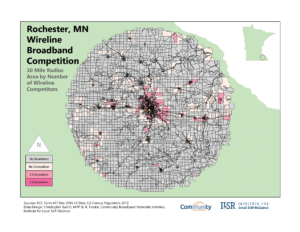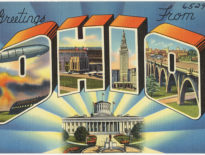
Federal data makes Rochester, Minn. out to be a competitive place for Internet service, with nearly all residents having multiple broadband providers to choose from. At a glance, the region appears to have 12 residential providers of high-speed Internet. However, after diving deeper into the numbers, ILSR found that’s not the case. Our findings are detailed in a new report: Broadband Competition in the Rochester Region: Reality vs. Federal Statistics.
It’s hard to blame anyone for getting confused. Federal Communications Commission (FCC) data is deeply flawed and does not accurately reflect internet access in the region. ILSR’s analysis found that competition in Rochester is actually much lower. While most city residents do have access to broadband, the nearby rural communities have few options for fast, reliable connectivity.

What’s Wrong With This Data?
The FCC data tends to overstate broadband availability due to the way Internet Service Providers (ISPs) report coverage. If an ISP can provide service to one residence within a census block, the entire census block is marked as having access to Internet service. Similarly, if two providers each have a presence on a census block, even if they don’t serve any of the same residences, the entire block will appear to have competition. These flaws work in the favor of large, incumbent ISPs– areas that appear to have good broadband coverage will not receive more investment, leaving the large ISPs without competition. Cable company Charter Spectrum, for example, is the only option for most residents to access broadband speeds greater than 100 Mbps. This lack of competition can result in high prices and poor service for subscribers.
Part of a National Pattern
With some limited competition inside the city limits but few affordable and reliable Internet service options in the rural areas outside of it, the Rochester region is similar to many other American cities. As a bipartisan group of US senators questions the accuracy of federal broadband data, cities across the country are considering how to secure the economic benefits of Internet access. Many of them are considering local investments to ensure more consumer choices and a working market for these essential services.
Download Broadband Competition in the Rochester Region: Reality vs. Federal Statistics to learn more about broadband coverage in Rochester, Minn. and the flaws in FCC data.
Photo of downtown Rochester via Wikimedia Commons.





